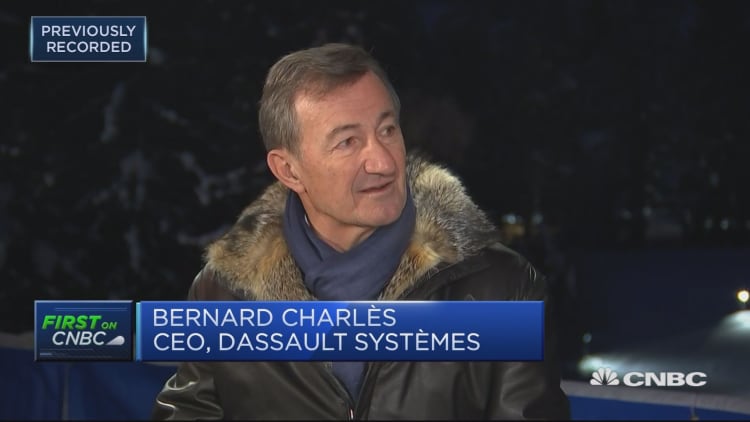
With increasing talk of the U.S. and China's trade war becoming a war over technology, the boss of one software firm thinks it's now time to start thinking about putting the safety of consumers over global internet standards.
The so-called "splinternet" is probably not a phrase you've heard of, but it increasingly has experts worried in an age of geopolitical divides.
The term refers to a literal splitting of the internet into disparate parts as other countries become increasingly suspicious of foreign technology. Former Google Chief Executive Eric Schmidt, for example, recently warned the internet would split in two, with one internet led by the U.S. and the other led by China.
"I think there is a dual concern — standardization across the globe and higher protection, whether its data or infrastructure protection," Dassault Systemes Chief Executive Bernard Charles told CNBC at the World Economic Forum in Davos, Switzerland on Wednesday.
"We all know that infrastructure should be well-protected, otherwise it's going to put everything at risk at the same time."
The tech executive said things like energy networks and autonomous vehicles should be transformed with "specialization" in mind — what he referred to as a "mix up" of technology and the safety of services for consumers.
"That specialization, is it only going to come from standardization of technology or is it going to come from quality of service that you provide to the consumers and citizens?" Charles said.
"My point is, what will prevail is the safety and security of services for citizens and consumers first — and technology should serve that, not the other way around."
'Economy of experience'
He added that the world was now in an "economy of experience" where people prefer slick services over tech products.
"I think at the beginning of the 21st Century things are changing upside down and the value of service are going to win against the value of technology," he said. "We are in an economy of experience, we are not in an economy of product anymore. You see that in every sector."
Charles added: "It's not about digitalization, it's about transforming the ecosystem," he said. "Look at mobility, infrastructure, cities ... This is about a new mix up of things."
He alluded to the example of a "virtual city" Dassault Systemes had created — a 3D model of Singapore used to tackle issues in the city-state like disaster management and infrastructure.
Watch: What is Davos?







